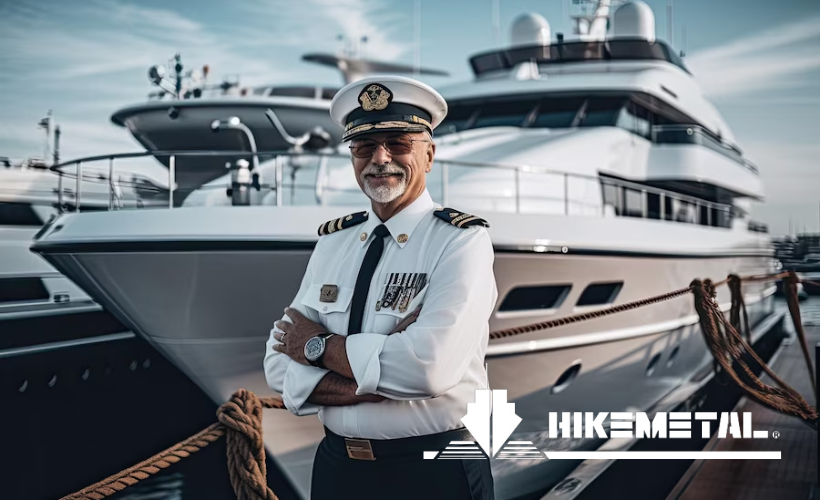Do you hear the call of the blue horizons deep inside your heart? Are you dreaming of a career on the high seas?
Becoming a ship captain in Ontario can be an exciting and rewarding option. But it’s not an easy one.
What kind of training do you need to command a vessel? How long will it take before you’re authorized to begin your first voyage?
If you don’t know where to start, keep reading!
Who is a Ship Captain?
A ship captain is a trained and licensed professional legally in command of a vessel in the coastal, lake, or river routes. Their responsibilities include:
- Safe and efficient voyages
- Passengers, crew, and cargo welfare
- Commanding the crew
- Monitoring the weather and travel routes
- Directing cargo handling
- Tracking equipment
- Maintaining detailed records
- Adhering to national and international regulations
- Communication with maritime authorities and other vessels
A ship captain’s leadership, expertise, and judgement are vital for success in domestic and international trips, transportation, operations, and trade.
Steps to Become a Ship Captain
A career as a ship captain in Ontario requires multiple skills, education, and certifications. Take a look at the steps to become one:
Foundational Education and Training
Your high school education is the groundwork for your admission to a university for advanced classes. Focus on subjects like mathematics and sciences to build your understanding.
Also, enrol for part-time jobs to help you learn the ropes of sailing and operating ships. Hand-on experience can build valuable skills and boost your resume with a boating license.
Starting water safety training is also a helpful step. The Canadian Red Cross offers a range of options like the Bronze Cross, Bronze Medallion, and First Aid certificate.
Bachelor’s Degree
To start your career as a ship captain, a bachelor’s degree from a specialized maritime school is a must. It can be a course in Nautical Science, Marine Engineering, Marine Transportation, or Maritime Studies.
These intensive programs equip students with in-depth knowledge of ships, logistics, and the industry. It also provides knowledge about the structure and operations of a ship, as well as maritime laws.
You’ll gain a detailed understanding and hands-on experience of navigation, weather, emergencies, vessel stability, and more. You’ll even learn about crew management, licensure, maritime economics, etc.
Experience and Knowledge
Becoming a ship captain – and being good at it – needs more than a bachelor’s degree. You need extensive experience at sea, for which you can work as a deckhand, assisting crew and learning operations.
Then, you can progress to the position of a bosun and develop supervisory skills. The training duration in these positions will vary depending on the size and operations of the ship where you work.
Log your sea time carefully and prepare documents recording all the relevant information. Share these with Transport Canada when you apply for certification.
Transport Canada Certification
To be legally eligible for a ship captain position in Canada, you must obtain a Certificate of Competency from Transport Canada. Ship type and size, area of operations, etc., are essential for the certificate.
Accordingly, you’ll be qualified to operate small marine vessels or international carriers. You’ll also need to prove your physical fitness, understanding of vessel safety, etc.
Examples of the type of license and qualification include:
- Marine Pilotage License or Certificate
- Marine Emergency Duties Certificate
- Certificate of Competency
- Maritime Medical Certificate
- Marine Advanced First Aid Certificate
Postgraduation
A master’s degree isn’t mandatory to pursue a career as a ship captain, but it can boost your credentials. A degree in Maritime Management (MMM) or Business Administration (MBA) can help.
These can build on undergraduate maritime studies and help develop leadership, operations, and budgeting expertise. These are useful for advanced positions and command roles.
Plus, when you pursue an optional qualification, it shows your commitment to your profession. Flexible part-time and online formats will allow you to study while working.
Job Application
Once you’re qualified and have acquired proper certifications, it’s time to look for the right job. But first, prepare your resume and cover letters to highlight your credentials, achievements, sea time, etc.
The best way to find jobs is through online portals or company websites. Analyze the job descriptions and required skills, and use relevant keywords in your applications and profiles.
Don’t forget to add references and testimonials that vouch for your skills, professionalism, and commitment. Also, be prepared for extensive interviews and face a lot of competition.
Certificate Renewal and Maintenance
As a ship captain, you must renew your certifications regularly to maintain their validity. Licensing bodies mandate such renewals to ensure you’re updated on the evolving regulations, technology, and practices.
Renewal processes may take place every 2-5 years and are specified on the official websites. You’ll have to complete refresher courses and pass exams.
Your credentials must be up-to-date to complete legal operations and command. Also, provide your current sea time.
Contact Hike Metal
Are you looking to buy a new vessel and perfect your sailing skills before you can become a ship captain in Ontario? Then, Hike Metal is the ideal destination for you.
Our services have catered to amateurs and professionals for decades. And we produce the best-quality ships and boats.

So, contact us TODAY!

